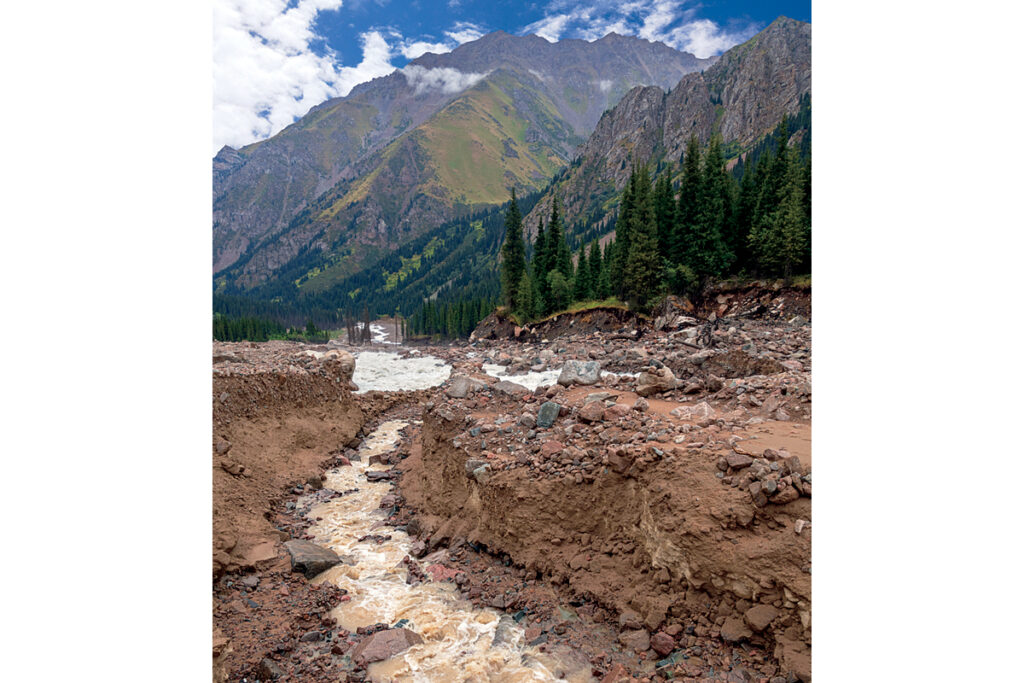Computing potential post-wildfire destruction could lead to preventive solutions.

More than 35,000 wildfires have raged across the United States so far this year, destroying more than 5 million acres of vegetation. Aside from stripping the land of vital plants and soil nutrients, wildfires contribute to landslides and mudslides, or post-fire debris flows, typically triggered by intense rain. These flows decimate buildings, infrastructure and lives.
Forecasting a landslide’s timing and severity after wildfires is tricky due to dynamic environmental factors, yet Dr. Elaine Spiller, associate professor of mathematical and statistical sciences, is collaborating with other researchers to change that. Spiller approaches this quandary by employing computational models and a mathematical concept called uncertainty quantification.

“This concept accounts for differences in rainfall levels and intensity, soil composition and more, and ensures the models we’ve developed can inform us about what might happen in both typical and extreme scenarios,” Spiller says. Her fellow researchers at the University of Arizona developed a physics-based model of debris flows that takes a supercomputer an entire day to solve. Spiller’s work makes this tool practical by developing fast surrogates of this computationally intensive model, so that different scenarios and different potential outcomes can be explored rapidly.
As instances of wildfires increase due to climate change, Spiller’s work is imperative to communities affected by fires and landslides as they try to plan for living with such natural disasters. She believes this research can have global applications.
“The goal is not only to help people avoid issues with evacuation and building loss, but to create communities that are resilient in the face of a changing environment,” Spiller says.



